Boris Johnson: U.K. Offering Brexit ‘Compromise’ to EU
A plan to maintain an open border between the U.K.'s Northern Ireland and EU member Ireland will likely face deep skepticism. Creative Commons
Creative Commons
MANCHESTER, England — The U.K. offered the European Union a proposed Brexit deal on Wednesday that it said represents a compromise for both sides, as British Prime Minister Boris Johnson urged the bloc to hold “rapid negotiations towards a solution” after years of wrangling.
In a letter to European Commission President Jean-Claude Juncker, Johnson said that not reaching a deal by the U.K.’s scheduled Oct. 31 departure date would be “a failure of statecraft for which we would all be responsible.”
The proposals focus on maintaining an open border between the U.K.’s Northern Ireland and EU member Ireland — the key sticking point to a Brexit deal. The U.K. proposes to do that by keeping Northern Ireland closely aligned to EU rules for trade in goods, possibly for an extended period.
The submission of formal proposals followed a speech by Johnson to Conservative Party members at their annual conference, which had been billed by his office as a take-it-or-leave-it “final offer” to the EU. Yet as delivered, it was more like a plea to the bloc, and to Britons, to end more than three years of acrimonious wrangling over the terms of the U.K.’s exit from the EU.
“Let’s get Brexit done,” was the repeated refrain to delegates at the conference in Manchester, northwest England.
British voters in 2016 narrowly chose to leave the EU but the country remains deeply divided over how to do it. In his speech, Johnson said people who voted for Brexit “are beginning to feel that they are being taken for fools.”
“They are beginning to suspect that there are forces in this country that simply don’t want Brexit delivered at all,” he said in the nationally televised speech. “And if they turn out to be right in that suspicion, then I believe there will be grave consequences for trust in our democracy.”
With Britain’s delayed departure from the bloc due to take place on Oct. 31, Johnson said the government was sending “constructive and reasonable proposals” to the EU.
He said the plan was “a compromise by the U.K. And I hope very much that our friends understand that and compromise in their turn.”
But the plan is likely to face deep skepticism from EU leaders, who doubt the U.K. has a workable proposal to avoid checks on goods or people crossing the Irish border.
A Brexit agreement between the EU and Johnson’s predecessor, Theresa May, was rejected three times by the U.K. Parliament, largely because of opposition to the “backstop,” an insurance policy designed to ensure there is no return to customs posts or other infrastructure on the Irish border.
An open border underpins both the local economy and Northern Ireland’s peace process. But Johnson and other British Brexit supporters oppose the backstop because it would keep the U.K. tightly bound to EU trade rules in order to avoid customs checks — limiting the country’s ability to strike new trade deals around the world.
Johnson insisted that “we will under no circumstances have checks at or near the border in Northern Ireland.”
The British proposal involves “an all-island regulatory zone on the island of Ireland, covering all goods including agrifood.” That would keep Northern Ireland in a regulatory zone with the EU for food, agricultural and industrial products, removing the need for checks, but the EU will carefully study the details.
The status has no time limit though it would have to be renewed every four years by the Northern Ireland government, Johnson said.
Under the plan there would still need to be customs checks, but Johnson suggested in his letter that they could be done away from the border at “other points on the supply chain.”
The EU said it would give the British proposal serious legal vetting before saying whether it is worthy of being a basis for future talks on the U.K.’s departure.
The European Commission said in a statement that “once received, we will examine (the U.K. text) objectively and in light of well-known criteria,” which includes whether it prevents a hard border on the island of Ireland, preserves cooperation between the Republic of Ireland and Northern Ireland and respects the EU rules on trade across borders.
European Commission President Jean-Claude Juncker is to speak with Johnson in the afternoon and technical talks among both sides are planned.
Johnson has vowed to leave on Oct. 31 with or without a Brexit deal.
In Wednesday’s speech he repeated his contention that the U.K. can handle any bumps that come from tumbling out of the bloc without a deal, which would mean the instant imposition of customs checks and other barriers between Britain and the EU, its biggest trading partner.
A no-deal Brexit is “not an outcome we want … (but) it is an outcome for which we are ready,” he said in his speech.
But the U.K. government and businesses both say the disruptions would be substantial, with the flow of goods coming into Britain through the major Channel port of Dover cut in half.
Many lawmakers want to prevent a no-deal exit, and have passed a law that compels the government to seek a delay to Brexit if it can’t get an agreement with the EU by Oct. 19. Johnson says he won’t do that — although he also insists he will obey the law. He has not explained how doing both those things will be possible.
Johnson, who has had a tumultuous 70 days in office, delivered a speech that was almost Boris-by numbers, peppered with puns, grand claims about Britain’s greatness and jokes at the expense of his opponents — chiefly left-wing Labour Party leader Jeremy Corbyn, whom he dubbed a “communist cosmonaut.”
It was also, pointedly, a pre-election speech, with a grab-bag of promises: more money for hospitals and police, unspecified tax cuts, greener buses and faster internet access.
The brash Brexit champion is popular with many Conservative members, who welcome his energy and optimism after three years of Brexit gridlock under May. Some, though, have qualms about his personal conduct and his divisive tactics, which include using words like “surrender” and “betrayal” about opponents of Brexit.
He has been dogged by allegations that he handed out perks to a female friend’s business while he was mayor of London and groped the thigh of a female journalist at a lunch two decades ago. Johnson denies impropriety in both cases.
The claims have not dented his popularity among many Conservatives.
“We don’t need Saint Boris, thank you,” said Jean Chesworth, a delegate from Newcastle-under-Lyme in central England. “We’re none of us saints. We can all look at the skeletons in our cupboards.”
She said the speech was “a synthesis of all Boris is … dynamic, successful outward-looking, optimistic, positive and achieving. That’s the person he is.”
___
Kirka reported from London. Raf Casert in Brussels contributed.
Your support is crucial…With an uncertain future and a new administration casting doubt on press freedoms, the danger is clear: The truth is at risk.
Now is the time to give. Your tax-deductible support allows us to dig deeper, delivering fearless investigative reporting and analysis that exposes what’s really happening — without compromise.
Stand with our courageous journalists. Donate today to protect a free press, uphold democracy and unearth untold stories.
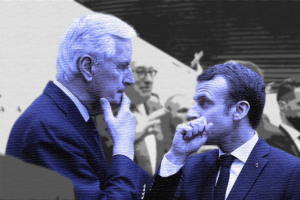

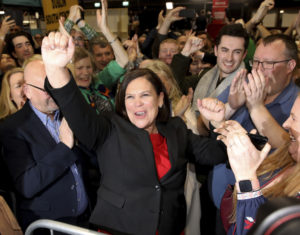
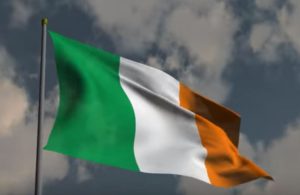
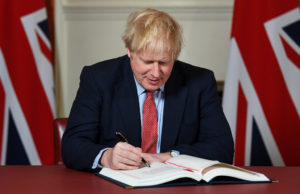
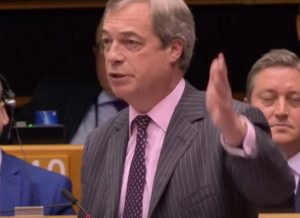
You need to be a supporter to comment.
There are currently no responses to this article.
Be the first to respond.